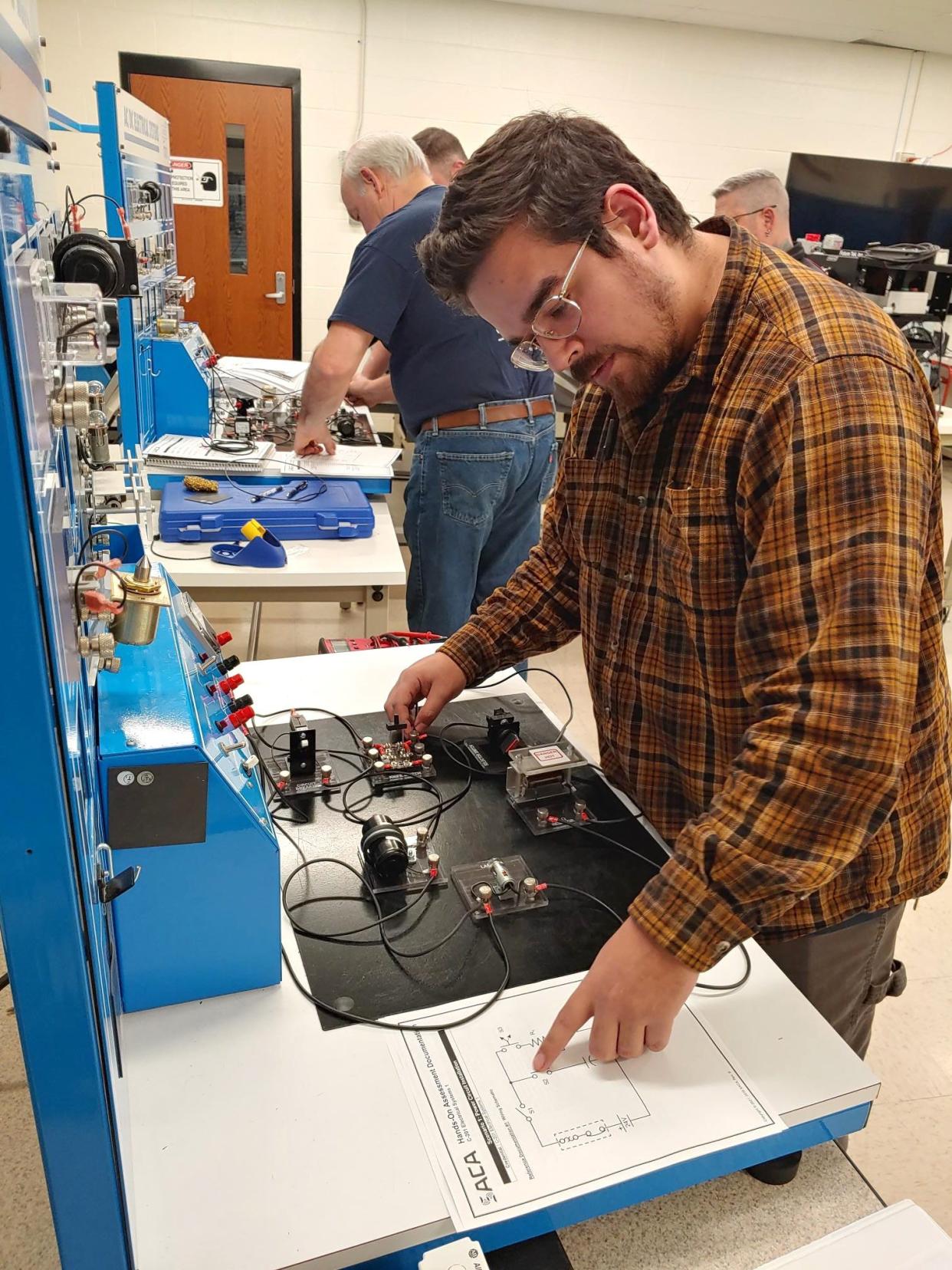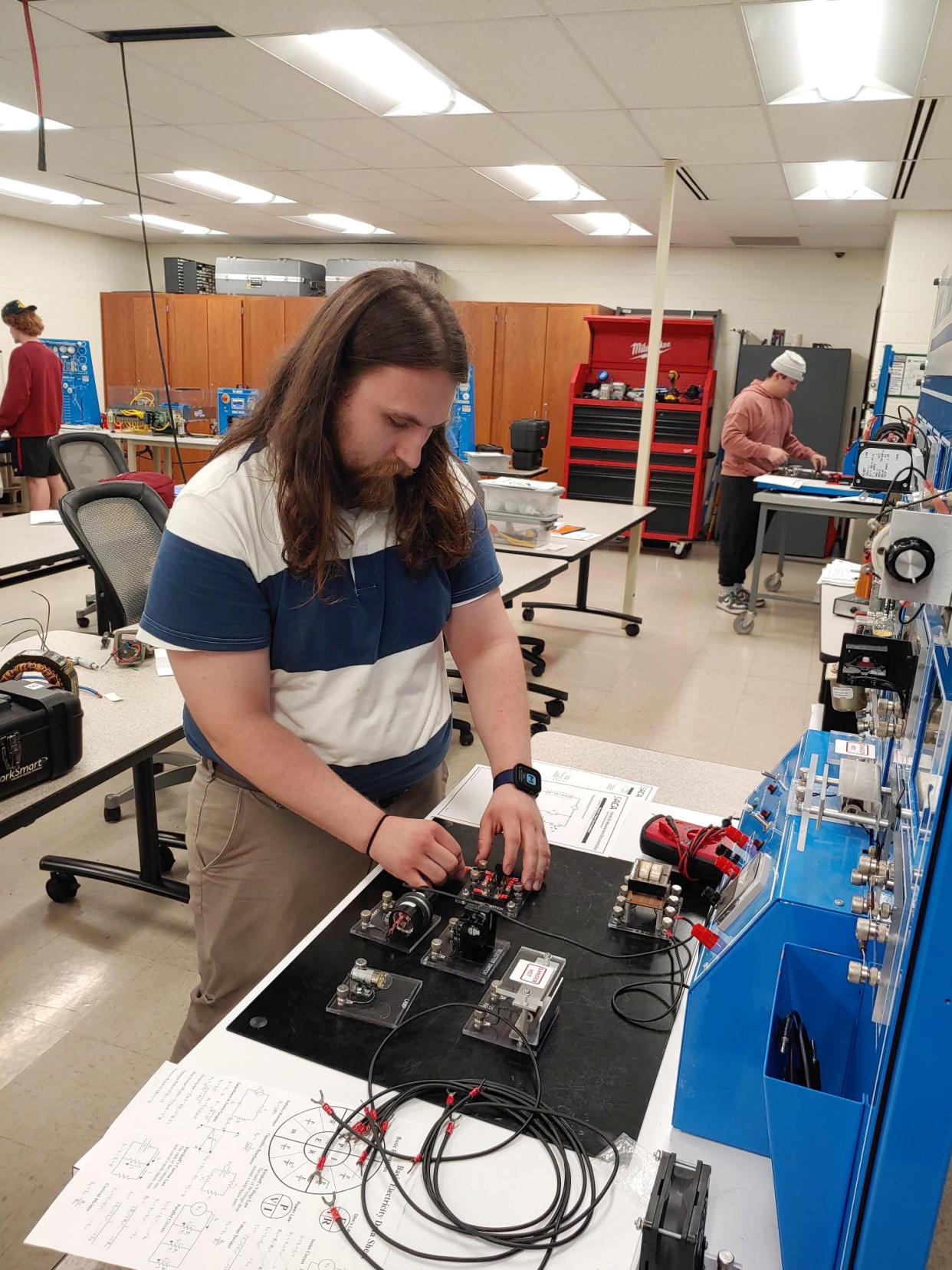Ivy Tech to spend $4M on Monroe County microelectronics program, laboratory

Ivy Tech Community College plans to invest $4 million to create a microelectronics training program in Bloomington that officials hope will steer graduates into high-wage careers.
Local economic development leaders said the investment is a “pivotal step” in bolstering the community’s burgeoning microelectronics industry.
Ivy Tech expects the first 20 students to begin their studies this fall, with plans to eventually increase the program to 100 graduates a year, said Adam Gross, vice chancellor of Ivy+ Career Link.
The state’s community college system will invest $4 million in Bloomington over five years, including $2 million in the first year, for startup, hiring faculty and staff, and building out a semiconductor training lab and simulated clean room.
Staff will include an industry liaison who will connect with area employers to determine industry needs, Gross said.
“We want this to be industry driven,” he said.
Microelectronics industry already growing in Monroe County, near Crane
The industry partners will include businesses at WestGate@Crane Technology Park and Chicago area-based NHanced Semiconductors, which recently announced plans to invest $152 million in Monroe County to create 250 jobs with annual salaries averaging about $100,000.
'Staggering:' $150M high-tech semiconductor investment coming to Southern Indiana
John Mensch, president of WestGate@Crane Authority, said the microelectronics industry is poised for significant growth in Indiana, and already announced investments are boosting demand for employees.
The existing nearly 900 jobs at WestGate pay an average annual salary of about $77,000, and Mensch said the park could easily see another 500 jobs in the next two years, which is driving up demand for workers, from receptionists to engineers and technicians.
“Ivy Tech is stepping into that gap,” he said.
Ivy Tech launching 1-year certificate for entry into microelectronics jobs
The college plans to launch a seven-class curriculum that allows students to obtain a certificate after one year that would give them entry into the high-paying microelectronics sector.

Gross said current high school seniors can think about enrolling this fall and having a certificate in hand in spring 2025, but the training also might make sense for people who are un- or under-employed or who are thinking about a career change. People can obtain a certificate relatively quickly and use it as a stepping stone into more lucrative careers.
“It’s really going to be a track for everyone,” he said.
Funding comes from the $252 billion CHIPS Act, which provides incentives to produce semiconductors and for research and innovation in sciences including materials, biology and quantum information.
U.S. Sen. Todd Young, R-Ind., has called the legislation an “investment in our national security.” Young worked to get the legislation passed in part to prevent ceding leading-edge technology to America’s political adversaries.
Local nonprofit Applied Research Institute secures funds
Ivy Tech secured funding with help from the Applied Research Institute, a Bloomington-based nonprofit that, according to its website, is an “innovation ecosystem orchestrator” that works with “partners from state and federal government, industry, and academia, across a wide spectrum of technology focus areas,” including hydrogen technology, cybersecurity and hypersonics.
ARI leads the Silicon Crossroads Microelectronics Commons Hub, one of eight sites that collectively comprise the Microelectronics Commons, which is funded by the CHIPS Act.
Brooke Pine, ARI’s executive vice president for innovation and strategy, said the federal government wants the eight innovation hubs to drive microelectronics growth and address national security needs.
For that to happen, she said, employers need to innovate, but the region also needs to develop the workforce to support the growth. The Bloomington-based hub early on focused on the workforce gap and quickly identified a need for technician-level expertise. Ivy Tech emerged as an obvious partner, given the college’s network and its already existing efforts to support microelectronics in Lafayette, Pine said.
Gross said the local classes will involve hands-on-skills. Among other things, students will learn how to put on protective gear before they enter a clean room and how to remove the gear once they’re done. The college will simulate a clean room environment with a drop curtain. Gross said he expects some of the training will take place at sites of some business partners, including NHanced.
The microelectronics credential is stackable, he said, which means students can use the credits toward an associate degree. People who are interested in the program should contact Gross at agross52@ivytech.edu.
Diversifying Monroe County's job economy with higher-wage opportunities
Jen Pearl, president of the Bloomington Economic Development Corp., said the organization is “thrilled” about the investments.
“By providing training opportunities for 20 students this fall, Ivy Tech is not only addressing the immediate needs of our community but also laying the groundwork for sustainable growth in high-paying wage opportunities,” she said.
“This investment underscores Ivy Tech's dedication to ensuring that our workforce remains competitive and skilled in emerging sectors like microelectronics,” Pearl said via email. “It offers a promising pathway for local talent, opening doors to lucrative employment opportunities as our local economy continues to diversify and expand.”
She said the microelectronics sector is allowing Monroe County to diversify its job base while increasing wages, which have lagged the state but are catching up.
“As of December 2023, private sector average hourly wages in Monroe County stood at $28.28, compared to the state average of $29.99 and the national average of $34.36,” Pearl said. “The investments we see here are just the beginning of efforts to advance opportunities for our neighbors through tech and microelectronics employment.”
Boris Ladwig can be reached at bladwig@heraldt.com.
This article originally appeared on The Herald-Times: Ivy Tech to develop Bloomington microelectronics training program
